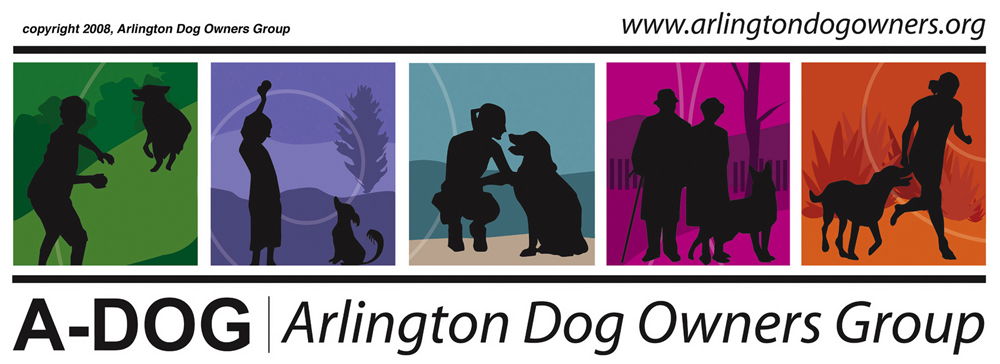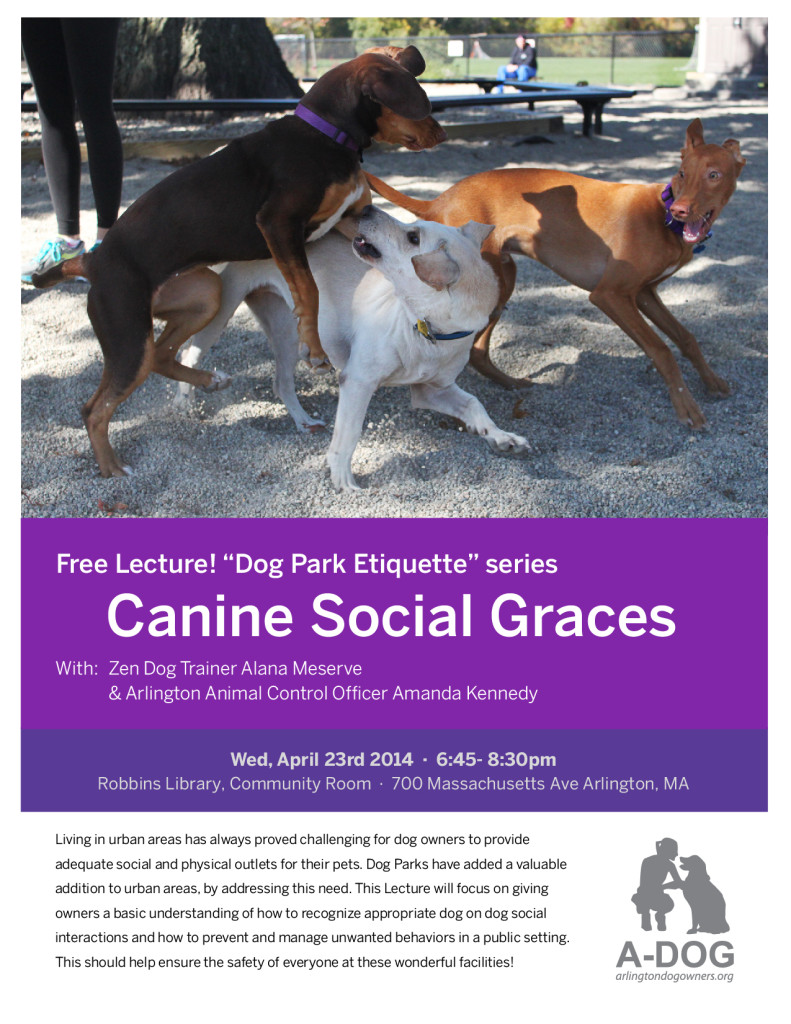Dog Parks can be either a valuable resource for the urban dog owner or a serious nuisance. It all depends on your point of view. It boils down to etiquette. If you understand dog park etiquette – and if other park users also understand and follow the same guidelines, Dog Parks are awesome. When etiquette is neglected, everyone suffers… especially the dogs!
Consider things carefully before taking your dog into your local dog park. First thing to know is whether or not the Dog Park is an option for your dog. Not all dogs are good candidates for dog-park play. For instance, dogs with behavioral issues in relation to other dogs or humans should not be taken to a Dog Park. These dogs need to be socialized in environments that are far more controlled may need the help of a professional behavior modification trainer.
Body language is the main way dogs communicate so knowing how to read your dog’s and others dogs’ physical cues are really important. The ideal body language is loose and playful, but dogs will exhibit a variety of behaviors as they contact new dogs and spend more time at the park. Overall you are looking for balanced play between dogs. Sometimes your dog is the chaser, and next he will be the chased. Stiff and tense body language is a precursor to disagreement and trouble. Try observing your dog when he is exhibiting different behaviors to get a gauge of what his body looks like in these different states.
It’s always wise to leave the park if your pet shows signs of fatigue stress or fear or if there are dogs present who seem over stimulation. Playtime can sometimes get out of hand. You should be the one who decides how your dog plays. The problem that occurs at most Dog Parks is that dogs are allowed to engaged in overly aroused play and as a result develop poor impulse control. There is a fine line between over-arousal and aggression. Some overly excited dogs respond to reprimands from other dogs by fighting back, and this is when things often escalate. It could be all talk but it could result in injury. You can simply interrupt play when you think your dogs have become too noisy or rowdy. Teaching your dogs to reliably come when called is one way to do this. This teaches your dog to trust you to handle the situation rather than take matters into their own hands.
Most of all, if you’re ever uncomfortable about something that is going on, be a responsible dog-park user, report inappropriate actions of other users that put the safety of dogs and humans at risk to help prevent serious problems and preserve the integrity of the park.
For more information visit www.zendogtraining.net and also look for the free lecture series on Dog Park Etiquette and Culture. The next lecture will be April 23, 2014 at the Robbins Library Community Room in Arlington, MA.

